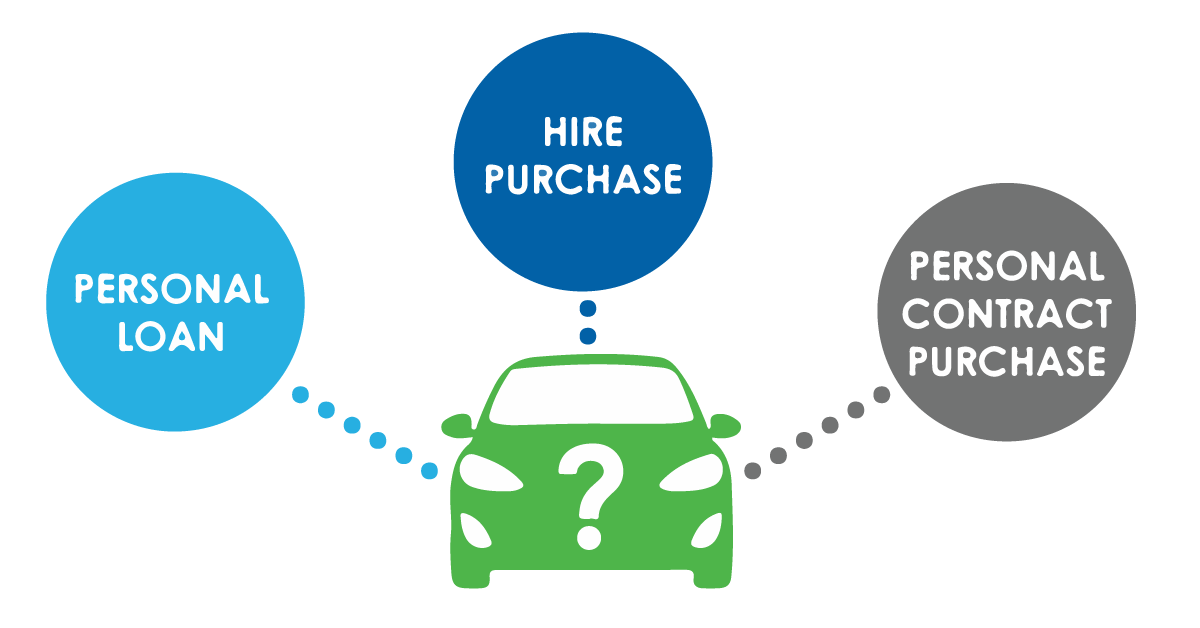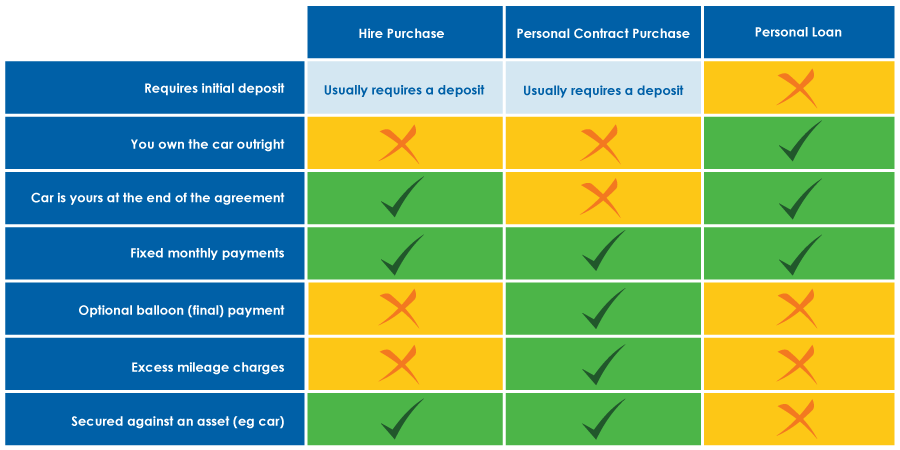
When you make that all important decision to either upgrade your current car or purchase your first car, the next thing to decide is how you are going to pay for it and what options will be suitable but also available to you depending on your circumstances.
Many people now decide to keep their savings in the bank for a rainy day and use car finance to assist with their next car purchase.
When you start that search for the best finance options for you, there are going to be so many companies offering such a huge range of packages to pick from, it’s hard to tell which the best solution is for you – especially considering how large a purchase a new car is.
We are here to help you decide what options are available to you if you have decided to use finance rather than purchasing a car with your savings. Take a look at the below information on the finance options available to you so you can review your options and make a more informed decision on your car finance package.
Types of Car Finance
The below table shows the 3 most common forms of finance for your next car purchase. We have put them in to this table to make it easy for you to compare like for like products and enable you to make a more informed decision.

Hire Purchase (HP)
Hire purchase car finance gives individuals the chance to buy a vehicle without having to pay for the amount in full before they can drive it. You hire the car from the finance provider for a set out period of time, and your purchase will be secured against the car itself.
That means the car is legally owned by the lender, and you will be the registered keeper while you make fixed monthly payments across a set period of time. Once you have paid the car’s value in full, plus an amount of interest together with the option to purchase fee, the car will be yours.
Hire purchase tends to require a deposit, usually 10% of the car’s value. The higher the deposit, the lower the monthly payments.
If you have an existing vehicle, you may have the option to part-exchange, when getting your next car on finance.
The car can be repossessed if you do not keep up with the repayments, but this is usually a last resort.
Pros of Hire Purchase Car Finance
- Quick and easy to arrange.
- Low or no deposit required
- Flexible repayment terms, usually from 12 to 60 months
- Fixed interest rates, meaning you know what your payment is each month
- No balloon payments at the end of the agreement
- Zero mileage limits
Cons of Hire Purchase Car Finance
- You don’t own the car until the final payment.
- The monthly payments tend to be higher than other finance options
- If you can’t keep up with the repayments, you could risk losing the car completely and potentially still be liable for the finance outstanding.
Personal Contract Purchase (PCP)
Personal contract purchase or PCP is where you will be paying off the value of the depreciation of the car, not the full value of the car. At the end of the agreement, if you decide you want to keep the car, you’ll need to pay what’s known as a ‘balloon payment’. This covers the cost of the vehicle and transfers ownership from the finance company to you. If you don’t want to keep the vehicle or have the money to pay off the balloon payment, you can give it back, or start a new PCP deal and get a new car.
Instead of getting a loan for the full cost of the car, you get a loan for the difference between its price brand new and the predicted value of the car at the end of the agreement. This is based on a forecast of annual mileage over the term of the agreement.
Pros of Personal Contract Purchase Car Finance
- Lower monthly payments compared with a hire purchase option
- Low deposit, usually 10%.
- Flexible repayment terms from 12 to 48 months
- A choice of what to do at the end of the repayment term
Cons of Personal Contract Purchase Car Finance
- Exceeding the mileage will usually result in additional charges
- Excessive wear and tear and damage, such as scratches, can mean you’ll pay extra fees
- The total amount you pay might be more than with hire purchase.
- There will be a balloon payment at the end of the agreement where you have to pay the outstanding balance to keep the car
Personal Loan
Personal loans are loans that a bank or other lenders provide that are not secured against any asset, such as your home. They’re also known as unsecured loans.
This type of loan allows you to borrow a lump sum over a fixed term and if you use a personal loan to pay for your car, you’ll own it outright from the day the money is transferred to the dealer.
Because the car is yours from the start you can sell the vehicle at any time, without needing to settle up with the finance company first, and you can make modifications to the car if you wish, without having to ask permission from anyone.
You should note that if you are a homeowner, make sure the loan is not secured against your home. Otherwise, you’ll be putting your home at risk if you fail to keep up with repayments.
Pros of a personal loan
- Can be arranged over the phone, internet or face-to-face and the money can be in your back almost instantly
- Covers the whole cost of the car (but it doesn’t have to).
- Because you own the car, if you got into financial difficulties, you could sell it to pay off the remainder of the loan.
- If you can get access to the best rates, a personal loan could be cheaper than dealer finance.
Cons of a personal loan
- You might have to wait for the funds to be paid into your bank account but, some lenders make funds available almost immediately, meaning you can get on with choosing the car you want straight away.
- Depending on your credit rating, some personal loans may not be available to you, and you may not be able to secure a competitive rate if you have bad credit
- Monthly costs can be higher than with other options.
What finance does Go Car Credit offer?
Here at Go Car Credit, we are specialists in providing Hire Purchase Car Finance to people who may have experienced bad credit, have income from benefits or are self-employed.
After initial checks, we review each application on an individual basis to ensure we fully understand your current circumstances.
If you think our finance products are for you, you can apply via our online application form in a matter of minutes.



